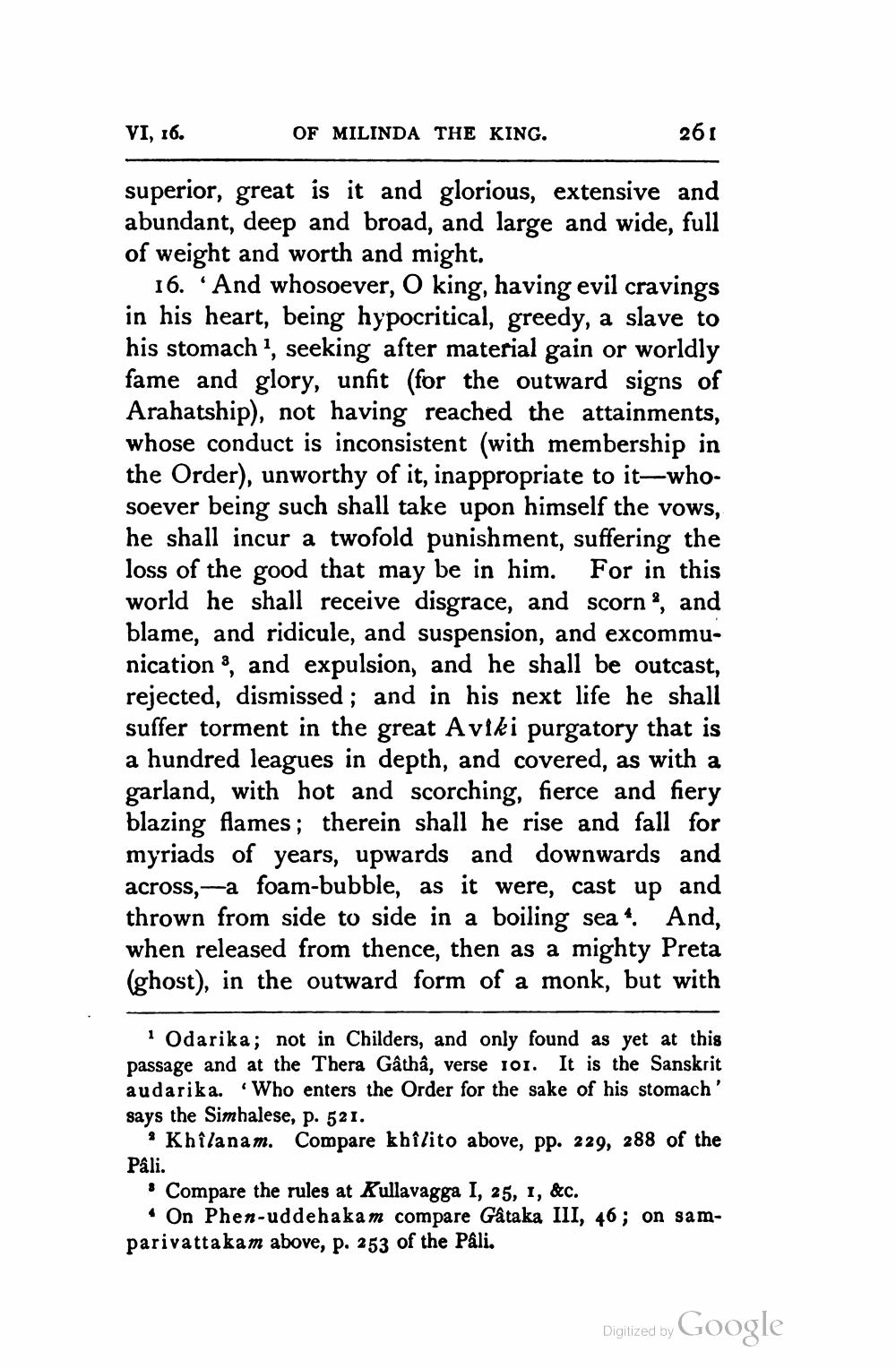________________
VI, 16.
OF MILINDA THE KING.
261
superior, great is it and glorious, extensive and abundant, deep and broad, and large and wide, full of weight and worth and might.
16. 'And whosoever, O king, having evil cravings in his heart, being hypocritical, greedy, a slave to his stomach ', seeking after material gain or worldly fame and glory, unfit (for the outward signs of Arahatship), not having reached the attainments, whose conduct is inconsistent (with membership in the Order), unworthy of it, inappropriate to it—whosoever being such shall take upon himself the vows, he shall incur a twofold punishment, suffering the loss of the good that may be in him. For in this world he shall receive disgrace, and scorn”, and blame, and ridicule, and suspension, and excommunication, and expulsion, and he shall be outcast, rejected, dismissed ; and in his next life he shall suffer torment in the great Aviki purgatory that is a hundred leagues in depth, and covered, as with a garland, with hot and scorching, fierce and fiery blazing flames; therein shall he rise and fall for myriads of years, upwards and downwards and across,-a foam-bubble, as it were, cast up and thrown from side to side in a boiling sea And, when released from thence, then as a mighty Preta (ghost), in the outward form of a monk, but with
Odarika; not in Childers, and only found as yet at this passage and at the Thera Gâthâ, verse 101. It is the Sanskrit audarika. Who enters the Order for the sake of his stomach' says the Simhalese, p. 521.
* Khîlanam. Compare khilito above, pp. 229, 288 of the Pâli.
Compare the rules at Kullavagga I, 25, 1, &c. • On Phen-uddehakam compare Gataka III, 46; on samparivattakam above, p. 253 of the Påli.
Digitized by Google




